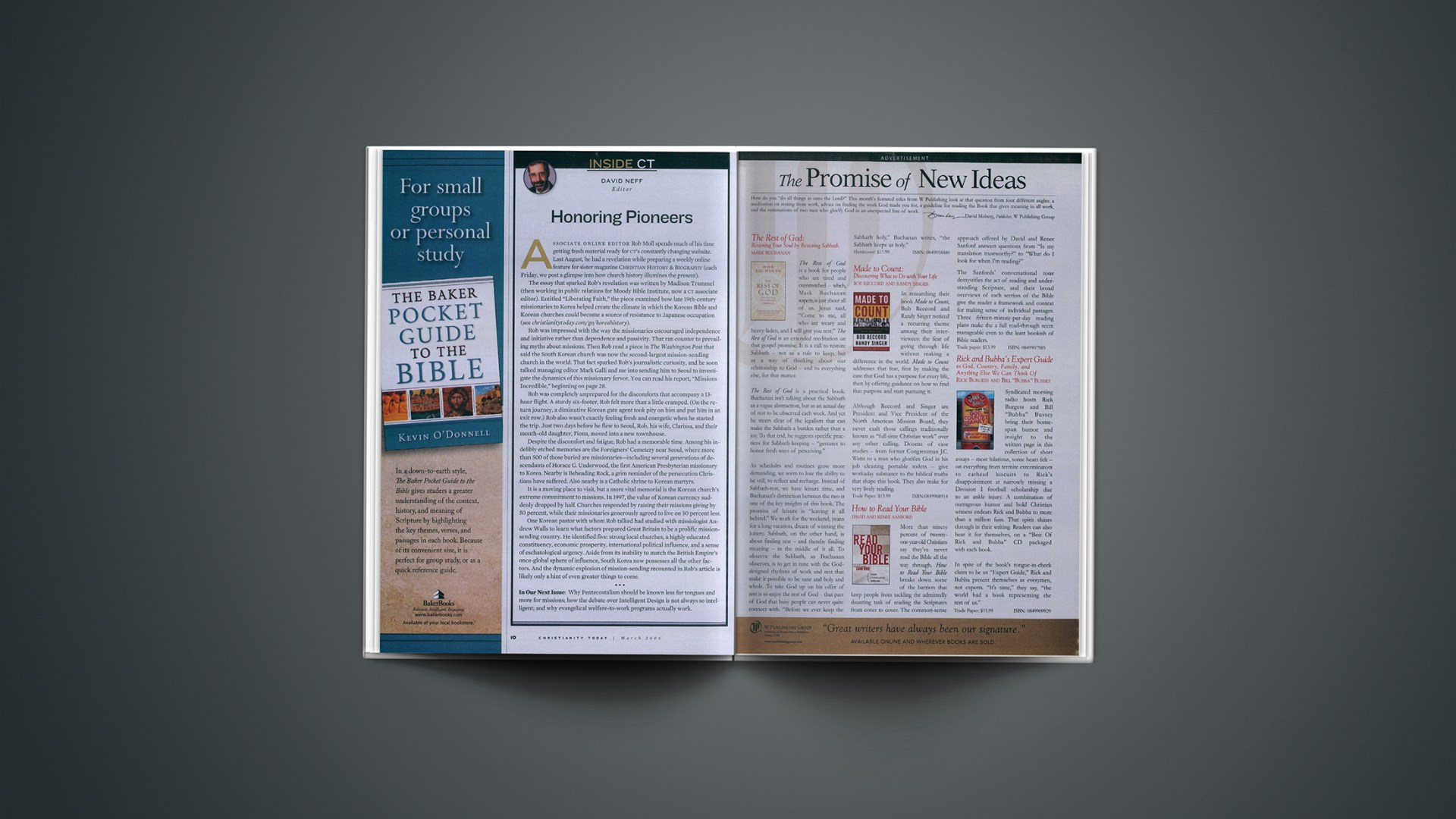Associate online editor Rob Moll spends much of his time getting fresh material ready for CT’s constantly changing website. Last August, he had a revelation while preparing a weekly online feature for sister magazine Christian History & Biography (each Friday, we post a glimpse into how church history illumines the present).
The essay that sparked Rob’s revelation was written by Madison Trammel (then working in public relations for Moody Bible Institute, now a CT associate editor). Entitled “Liberating Faith,” the piece examined how late 19th-century missionaries to Korea helped create the climate in which the Korean Bible and Korean churches could become a source of resistance to Japanese occupation.
Rob was impressed with the way the missionaries encouraged independence and initiative rather than dependence and passivity. That ran counter to prevailing myths about missions. Then Rob read a piece in The Washington Post that said the South Korean church was now the second-largest mission-sending church in the world. That fact sparked Rob’s journalistic curiosity, and he soon talked managing editor Mark Galli and me into sending him to Seoul to investigate the dynamics of this missionary fervor. You can read his report, “Missions Incredible.”
Rob was completely unprepared for the discomforts that accompany a 13-hour flight. A sturdy six-footer, Rob felt more than a little cramped. (On the return journey, a diminutive Korean gate agent took pity on him and put him in an exit row.) Rob also wasn’t exactly feeling fresh and energetic when he started the trip. Just two days before he flew to Seoul, Rob, his wife, Clarissa, and their month-old daughter, Fiona, moved into a new townhouse.
Despite the discomfort and fatigue, Rob had a memorable time. Among his indelibly etched memories are the Foreigners’ Cemetery near Seoul, where more than 500 of those buried are missionaries—including several generations of descendants of Horace G. Underwood, the first American Presbyterian missionary to Korea. Nearby is Beheading Rock, a grim reminder of the persecution Christians have suffered. Also nearby is a Catholic shrine to Korean martyrs.
It is a moving place to visit, but a more vital memorial is the Korean church’s extreme commitment to missions. In 1997, the value of Korean currency suddenly dropped by half. Churches responded by raising their missions giving by 50 percent, while their missionaries generously agreed to live on 50 percent less.
One Korean pastor with whom Rob talked had studied with missiologist Andrew Walls to learn what factors prepared Great Britain to be a prolific mission-sending country. He identified five: strong local churches, a highly educated constituency, economic prosperity, international political influence, and a sense of eschatological urgency. Aside from its inability to match the British Empire’s once-global sphere of influence, South Korea now possesses all the other factors. And the dynamic explosion of mission-sending recounted in Rob’s article is likely only a hint of even greater things to come.
Copyright © 2006 Christianity Today. Click for reprint information.










